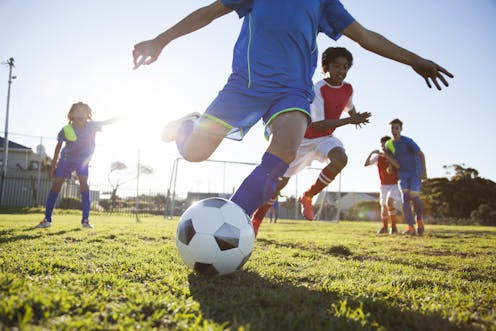How do we protect kids from abuse in sport without creating a ‘culture of suspicion’ that ruins it for everyone?
- Written by Blake Bennett, Senior Lecturer in Sport Coaching and Pedagogy, University of Auckland

Although sport is often touted as a vehicle for positive experiences, many investigations into sporting cultures – particularly high performance sport – have highlighted how predatory or abusive behaviour by coaches can emerge and be tolerated.
The potential for (and reality of) abuse in youth sport is based on various factors. This includes the reputation of the coach to produce “champions”, the money medals generate for an organisation, the pressure felt by athletes to endure pain and discomfort as part of training, and a general culture of obedience.
For those reasons, a robust, sustainable child safeguarding (CSG) policy has become a critical step to ensure New Zealanders – young and old – can continue to enjoy their involvement in sport.
The risk, however, is that these necessary safeguards can inadvertently create confusion and cultures of suspicion between colleagues, parents and athletes. When even a congratulatory high-five or reassuring pat on the back can be misconstrued, we need to ask how we get the balance right.
Keeping kids safe
Encouragingly, the New Zealand’s Children’s Act (2014) introduced a series of changes over the past few years to enhance the safety of children and adults working with children in a range of settings.
Although the law is not specifically aimed at the sport sector, Sport NZ – the crown entity responsible for governing sport and recreation – has responded with several (online) training modules, and engaged with the sector to safeguard children interacting with adults in sport settings.
Notwithstanding this progress at home, international research suggests the legal requirements on coaches can cause confusion, spoiling the otherwise healthy and positive relationships coaches can have with parents and young athletes.
This is especially true of volunteers, who make up such a large proportion of coaching roles generally, and who often struggle to access nuanced CSG training in preparation for their roles.
Policy fails to make it into practice
Currently, the influence policy is having on coach and athlete experiences is not well understood in Aotearoa New Zealand.
To begin to address this, we asked 237 coaches from around the country to complete an online survey of their understanding of CSG policy in their sport or club, and how that policy is influencing their coaching.
While the findings indicated some sport organisations are reaching more coaches than others, overall the results indicated significant uncertainty about what CSG policy exists or what it requires.
Read more: Gymnastics NZ has apologised for past abuses — now it must empower athletes to lead change
In particular, only 33% of volunteer coaches considered current CSG policy helpful in their roles.
Many participants (60%) said they had not made any changes to their coaching practice in response to CSG policy. Notwithstanding the commendable efforts made by Sport NZ (and others), this is concerning and suggests much more clarity is needed to ensure safe sporting environments.
Blanket bans have trumped nuanced policy
So, what kinds of changes are being made by the remaining 40%? Data from this and other research indicates some coaches and organisations are misinterpreting CSG policy, and consequently making adjustments based on what they think is right.
For instance, participants said policies in their sport or club aimed to restrict males from coaching females, and encouraged sweeping bans of all physical contact between adults and children.
However, these reactions are not advocated as the “best practice” outlined in the Children’s Act or Sport NZ’s training. Rather, it seems the lack of clarity surrounding CSG best practice is sometimes based more on people’s “best guess”.
We suggest this is primarily driven by wider, societal anxieties about abuse in sport, and is causing people to make changes that are neither required nor necessary.
As research in Aotearoa and abroad has shown, this has included “no touch” and gender separation policies that lead to adults and children viewing each other as potentially dangerous.
This in turn leads to cultures of suspicion rather than positive and sustainable cultures of safeguarding. Equally concerning is the danger of turning good people away from sport if misinterpretations escalate.
Balance needed to prevent long term harm
No one wants children exposed to predatory behaviour in sport. But discouraging interaction between males and females, or adults avoiding any physical contact with children, isn’t a solution.
Research suggests this culture of suspicion can worsen over time, which is antithetical to a positive educational experience. As scholars in the UK have suggested, this inevitably leads to significant collateral damage to intergenerational relationships.
Given the apparent uncertainty surrounding CSG policy, any changes coaches or organisations make should be monitored carefully by sport sector leaders, policy makers and coach educators.
Challenging as it may be, it’s critical we provide opportunities for people to share and discuss best practice with each other and with experts. To that end, Sport NZ’s efforts to circulate CSG policy in the sector must be supported by ongoing research to measure what’s happening over time.
This is imperative if sport is to keep providing rewarding experiences for both adults and children.
Authors: Blake Bennett, Senior Lecturer in Sport Coaching and Pedagogy, University of Auckland



















